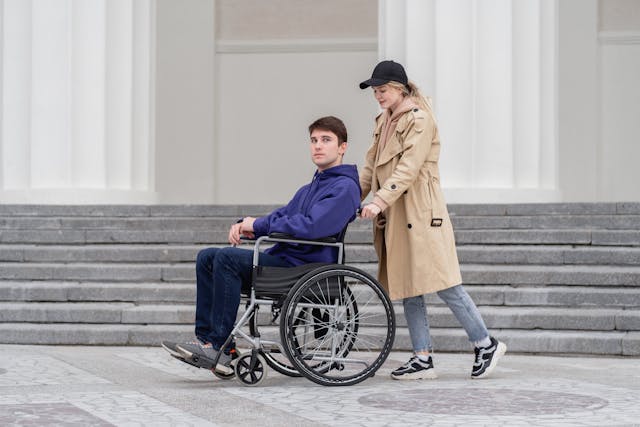Accessible Travel: Tips and Resources for Travellers with Disabilities

Travelling can be one of life’s greatest joys — a chance to explore new places, connect with different cultures, and create lasting memories. For people with disabilities, travel may come with additional considerations, but with the right planning and resources, it can be just as enriching and accessible.Whether you’re planning a quick getaway or a longer adventure, here are some practical tips and helpful resources to ensure your journey is smooth, enjoyable, and empowering.
Plan Ahead with Accessibility in Mind
Research is key when travelling with a disability. Begin by confirming that your destination is disability-friendly — this includes checking public transport accessibility, accommodation options, and tourist attractions. Many travel websites now offer filters for accessibility features like wheelchair access, hearing support, and service animal accommodation.It’s also worth contacting hotels or venues directly to confirm details such as lift availability, accessible bathrooms, or step-free entry. Even major cities can vary in how inclusive their infrastructure is, so preparation is essential.
Book with Specialised Travel Providers
There are travel agencies and tour operators that specialise in accessible travel. These companies understand the unique needs of travellers with disabilities and can tailor itineraries that prioritise comfort, safety, and inclusivity. Look for providers that offer accessible airport transfers, mobility equipment hire, or support staff if needed.

Know Your Rights When Flying
Airlines operating in and out of Australia are required to provide assistance for passengers with disabilities. This includes support through security, boarding, and disembarking. When booking your flight, notify the airline of your specific needs well in advance, and reconfirm at least 48 hours before departure.It’s also a good idea to arrive early at the airport to ensure a smooth check-in process, especially if you’re travelling with mobility aids or medical equipment.
Pack Thoughtfully
Pack any medications, mobility aids, and medical documents in your carry-on, along with a letter from your doctor explaining your condition and any equipment you’re carrying. You may also want to include a list of local medical services or hospitals near your destination, just in case.If you use assistive technology, bring along spare batteries, chargers, and adapters suitable for your destination’s power outlets.
Connect with Community Resources
Travelling doesn’t have to mean disconnecting from community support. Local organisations and social groups can be incredibly helpful for visitors wanting to meet others or find additional support while away from home.For example, if you’re visiting Victoria, connecting with disability social groups in Melbourne can provide opportunities to engage with like-minded people, join inclusive events, or simply get local tips from those who understand your needs.

Use Accessibility Apps and Tools
There’s a growing number of mobile apps designed to support accessible travel. These can help you locate accessible toilets, navigate public transport, or find step-free routes. Some popular options include:
- Wheelmap: A user-generated map of wheelchair-accessible places.
- AccessNow: Offers detailed accessibility reviews for venues around the world.
- Be My Eyes: Connects blind and low-vision users with sighted volunteers via video call for real-time assistance.
Choose Destinations That Celebrate Inclusion
Many cities and regions around the world are embracing inclusive tourism. In Australia, places like Melbourne, Adelaide, and the Gold Coast have made significant strides in accessibility — from beach wheelchairs and accessible trams to inclusive museums and events.Look for travel blogs or social media groups focused on accessible travel for inspiration and up-to-date recommendations.
Accessible travel is more achievable today than ever before
With thoughtful planning, the right tools, and a supportive network, travellers with disabilities can experience the joy of exploration without limits.Whether you’re venturing across the globe or discovering hidden gems in your own backyard, remember that travel should be for everyone — inclusive, empowering, and full of possibility.








